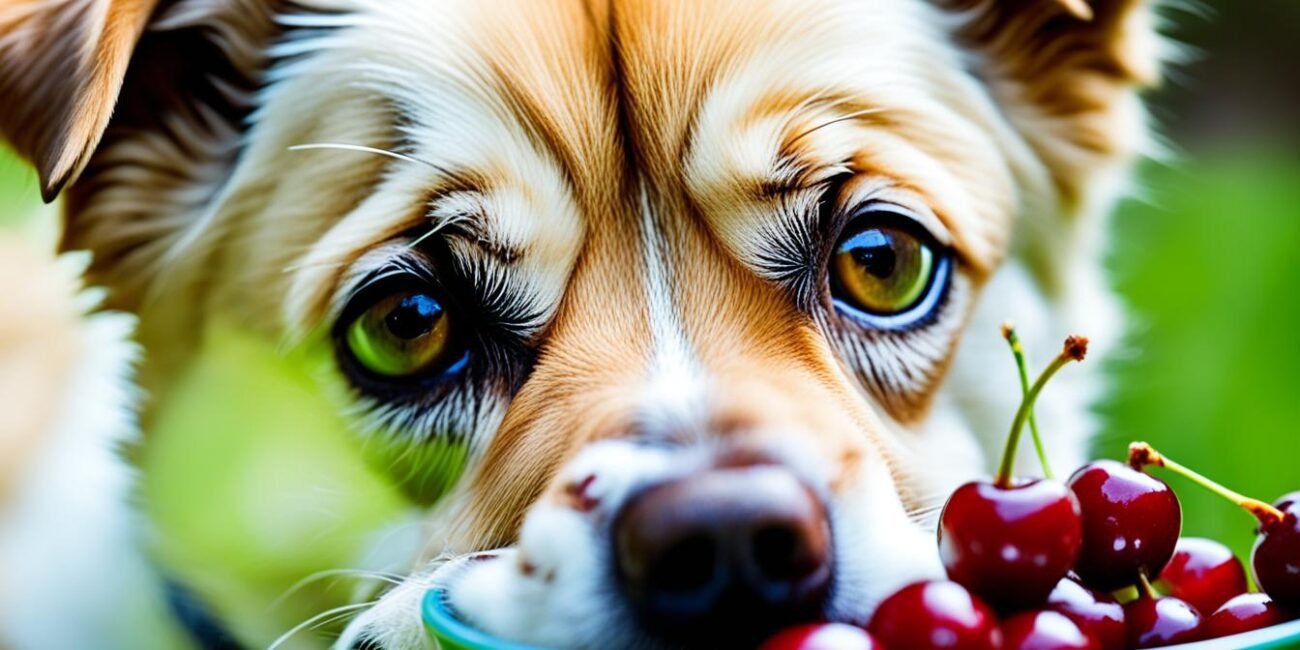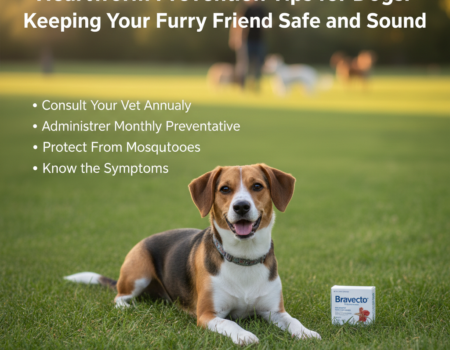Did you know that cherries, those vibrant and delicious fruits, can actually be harmful to our beloved furry friends? While cherries may seem like a harmless treat for dogs, they can pose significant risks to their health. The cyanide content in the cherry pit, leaves, and stems can lead to cyanide poisoning in dogs, and ingesting these parts can also cause intestinal blockages. Even the flesh of the cherry itself can cause upset stomachs in dogs. So, before you toss your pup a cherry, it’s essential to understand the potential dangers and explore safer alternatives.
Key Takeaways:
- Cherries contain cyanide in the pit, leaves, and stems, posing a risk of cyanide poisoning in dogs.
- Ingesting the cherry pit can lead to choking hazards and intestinal blockages in dogs.
- Symptoms of cherry poisoning in dogs may include upset stomach, constipation, decreased appetite, and vomiting.
- Avoid feeding any kind of cherry, including maraschino cherries, to dogs due to the potential dangers.
- Opt for safer alternatives like blueberries, peeled and pitted mangoes, or apples without the core and seeds.
Why Are Cherries Bad for Dogs?
Cherries can be harmful to dogs due to their toxic properties. The pit, leaves, and stems of cherries contain cyanide, which is extremely dangerous for dogs. Cyanide poisoning can occur if a dog ingests these parts in large enough quantities. Additionally, eating the pit can lead to choking hazards or intestinal blockages. It’s important to be cautious and avoid feeding cherries to dogs.
Cyanide poisoning in dogs can result in various symptoms such as an upset stomach, constipation, decreased appetite, and vomiting. While the flesh of cherries may seem harmless, the potential risks outweigh any nutritional benefits it may provide. Make sure to keep cherries and their parts out of your dog’s reach to prevent any accidental ingestion.
If you suspect your dog has consumed cherries or is showing symptoms of cherry poisoning, it’s essential to seek veterinary attention immediately. Prompt treatment can help mitigate the effects of toxicity and ensure your dog’s well-being.
Cherry Toxicity in Dogs: Symptoms and Risks
| Risks | Symptoms of Cherry Poisoning |
|---|---|
|
|
Can Dogs Have Cherries of Any Kind?
When it comes to cherries, it’s best to err on the side of caution and avoid feeding them to dogs altogether. Whether it’s bing cherries, rainier cherries, black cherries, or even maraschino cherries, all kinds of cherries pose risks to dogs. While maraschino cherries may not have pits, they contain high levels of sugar, which are not suitable for dogs to consume. Canned cherries should also be off the table due to added sugars and preservatives.
Feeding fresh cherries to dogs would require removing the pit, stem, and any leaves, which can be time-consuming and may not provide significant benefits to your furry friend. With so many other safe and healthy fruit options available, it’s best to explore alternatives that won’t pose any potential risks or complications for your dog.
If you’re unsure about whether a specific fruit is suitable for your dog, it’s always a good idea to consult with your veterinarian for guidance. They can provide professional advice based on your dog’s individual needs and dietary requirements. Remember, the well-being and safety of your canine companion should always be the top priority.
What to Do if Your Dog Eats a Whole Cherry
If your dog accidentally consumes a whole cherry, it is not likely to cause harm. However, you should monitor your dog for symptoms such as upset stomach or diarrhea. If your dog eats multiple cherries, especially including the pits, be alert for symptoms of cyanide poisoning, such as trouble breathing, red gums, and dilated pupils. If your dog shows any symptoms or if you have concerns, it is recommended to contact your veterinarian for proper guidance and advice.
| Symptoms of Cyanide Poisoning | Signs of Intestinal Blockage |
|---|---|
|
|
Are There Safer Alternatives?
While cherries may not be a safe option for dogs, there are plenty of other fresh fruits and berries that are safer alternatives. Blueberries, peeled and pitted mangoes, and apples without the core and seeds are all good options for dogs. It is important to choose fruits that are safe fruits for dogs to eat and avoid those that may be toxic or harmful.
| Safe Fruits for Dogs to Eat | Benefits |
|---|---|
| Blueberries | – Rich in antioxidants – High in fiber – Good for the immune system |
| Peeled and Pitted Mangoes | – High in vitamins A, C, and E – Good for digestion – Promotes healthy skin |
| Apples (without core and seeds) | – High in fiber – Promotes fresh breath – Good for the heart |
These fruits not only provide dogs with essential nutrients but also add variety to their diet. Just remember to introduce new foods gradually and in moderation to avoid digestive issues. Always consult with your veterinarian for specific recommendations based on your dog’s individual needs.
Use Extreme Caution with Feeding Dogs Cherries
Feeding dogs cherries requires extreme caution due to the potential dangers they pose. The pits, stems, and leaves of cherries contain cyanide, which is poisonous and can be lethal if consumed in large quantities. These parts can also cause intestinal blockages if ingested. Even maraschino cherries, which have the pits removed, are not recommended as they are high in added sugars. It is important to prioritize the safety of dogs and choose alternative treats that are known to be safe and healthy.
Cherry toxicity in dogs
Cherry toxicity in dogs is a significant concern and should not be taken lightly. The cyanide content in cherry pits, stems, and leaves can lead to cyanide poisoning, which can be life-threatening for dogs. Cyanide interferes with the oxygen-carrying capacity of red blood cells, leading to severe symptoms such as difficulty breathing, weakness, and collapse.
Risks of dogs eating cherries
The risks of dogs eating cherries go beyond cyanide poisoning. Ingesting the pits can pose a choking hazard or cause intestinal blockages, requiring immediate medical attention. These blockages can lead to vomiting, severe abdominal pain, and even surgery in some cases.
Cherry pit dangers for dogs
The dangers of cherry pits for dogs cannot be overstated. The pits are hard and can cause dental fractures if dogs attempt to bite them. Additionally, they can splinter into sharp pieces in the digestive tract, causing damage and internal injuries.
| Cherry Pit Dangers for Dogs | Symptoms | Treatment |
|---|---|---|
| Choking hazard | Coughing, gagging, difficulty breathing | Immediate removal or dislodging of the pit |
| Intestinal blockage | Vomiting, diarrhea, abdominal pain | Medical intervention, surgery may be required |
| Dental fractures | Inability to eat or chew, pain, mouth bleeding | Dental treatment may be necessary |
Can Dogs Eat Dried Cherries?
If you’re looking for a safer alternative to fresh cherries, homemade dried cherries can be an option for dogs. Drying cherries at home using a dehydrator eliminates the need for added sugars or preservatives that may be found in store-bought options. However, it’s important to keep a few things in mind when giving dried cherries to your furry friend.
Remember: It is essential to serve dried cherries to dogs in moderation and ensure that they are free from pits, stems, and leaves. These parts of the cherry can still pose risks to your dog’s health.
While dried cherries themselves are safe for dogs to eat, it is crucial to monitor your pet’s portion size and the frequency of consumption. Too many dried cherries can lead to digestive issues or upset stomach. To avoid any adverse reactions, start by offering a small amount of dried cherries and observe how your dog responds. If your dog enjoys them and shows no signs of discomfort, you can continue to offer them as an occasional treat.
Remember: Dried cherries should never replace a balanced diet specifically formulated for dogs. They should only be given as an occasional addition to their regular meals.
In case you’re thinking of trying store-bought dried cherries, it’s essential to read the product labels carefully. Some commercial dried cherries can contain added sugars or preservatives that may not be suitable for dogs. Homemade dried cherries allow you to have full control over the ingredients and ensure a healthier option for your furry companion.
The Benefits of Homemade Dried Cherries for Dogs
Opting for homemade dried cherries offers several advantages:
- Control over ingredients: Homemade dried cherries allow you to avoid any additives, sugars, or preservatives that may be harmful to your dog.
- Healthier snacking: Homemade dried cherries retain most of the nutrients found in fresh cherries, making them a potential source of vitamins and antioxidants for your dog.
- Cost-effective: Dehydrating cherries at home can be a more budget-friendly option compared to purchasing commercial dried cherries.
By choosing to prepare dried cherries at home, you can provide a safer and healthier snacking option for your canine companion.
| Benefits of Homemade Dried Cherries for Dogs |
|---|
| Control over ingredients |
| Healthier snacking option |
| Cost-effective |
Can Dogs Eat Maraschino Cherries?
Maraschino cherries, despite having the pits removed, are not a recommended treat for dogs. They are typically sweetened with a high amount of sugar, which can upset a dog’s stomach. Additionally, they may contain preservatives that are not beneficial to dogs’ health. It is best to avoid feeding dogs maraschino cherries and instead choose healthier alternatives.
Can Dogs Eat Cherry Yogurt?
Cherry-flavored yogurt is not a healthy treat for dogs. Flavored yogurts often contain excess sugar, preservatives, and other additives that may not be suitable for dogs. It is important to choose plain, sugar-free, and xylitol-free yogurt for dogs, or opt for safe fruits and berries that can be served separately.
| Safe Fruits for Dogs to Eat | Benefits |
|---|---|
| Blueberries | High in antioxidants |
| Peeled and pitted mangoes | Rich in vitamins A, C, and E |
| Apples (without core and seeds) | Good source of dietary fiber |
Instead of cherry yogurt, consider incorporating these safe fruits and berries into your dog’s diet. They provide essential nutrients and can be a tasty and refreshing treat:
- Blueberries: High in antioxidants and can support your dog’s immune system.
- Peeled and pitted mangoes: Packed with vitamins A, C, and E, promoting healthy skin and a strong immune system.
- Apples (without core and seeds): A good source of dietary fiber and can help improve digestion.
By choosing these safe alternatives, you can ensure that your furry friend receives a nutritious and enjoyable snack without any potential risks or harmful additives.
Can Dogs Eat Cherry Ice Cream?
When it comes to cherry-flavored ice cream, it’s best to keep it away from our furry friends. Similar to cherry yogurt, cherry ice cream often contains high levels of sugar, preservatives, and potentially xylitol, which is toxic to dogs. Feeding dogs cherry ice cream can lead to digestive issues and even pose serious health risks. To keep our pups safe and satisfied, it’s important to choose healthier options or safe fruits for dogs to enjoy.
Healthier Alternatives for Dogs
While cherry ice cream may not be suitable for dogs, there are plenty of delicious and safe fruits they can enjoy as a treat. Here are a few examples:
- Blueberries: These small, antioxidant-packed berries are not only safe for dogs but also offer various health benefits.
- Mangoes: Peeled and pitted mangoes can be a sweet and satisfying treat for dogs as long as they are served in moderation.
- Apples: Remove the core and seeds, and dogs can enjoy the crisp goodness of apples as a healthy snack.
Table: Comparison of Fruits for Dogs
| Fruit | Safety for Dogs | Nutritional Benefits |
|---|---|---|
| Cherry | Not recommended | Possess some beneficial nutrients |
| Blueberry | Safe | Rich in antioxidants and vitamins |
| Mango | Safe in peeled and pitted form | High in vitamin C and dietary fiber |
| Apple | Safe without core and seeds | Good source of vitamins A and C |
By opting for these safe fruits, we can treat our dogs to a delectable snack without compromising their health. Remember to always introduce new foods gradually and consult with a veterinarian if you have any concerns or questions.
How Many Cherries Can Dogs Eat?
Treats play an important role in a dog’s diet, providing enjoyment, variety, and essential nutrients. When it comes to cherries, it’s crucial to understand the appropriate portion sizes for our furry friends. While cherries may not be the safest fruit for dogs to consume, when fed in moderation, they can be enjoyed as an occasional treat.
According to veterinary experts, treats, including cherries, should only make up 10% of a dog’s daily diet, while the remaining 90% should come from a balanced dog food diet. This ensures that our dogs receive the necessary nutrients and avoids overindulgence in less nutritious options.
| Dog Size | Recommended Cherry Portion |
|---|---|
| Small Dogs | Avoid giving cherries or limit to one or two cherries |
| Medium Dogs | Up to three to four cherries |
| Large Dogs | Five to six cherries |
It’s important to note that these portions are general guidelines and should be adjusted based on your dog’s individual size, age, and overall health. Always consider consulting with a veterinarian to determine the ideal portion size for your specific dog.
Remember, moderation is key. No matter how safe a fruit is for dogs, excessive consumption can still result in digestive issues. Monitor your dog for any signs of an upset stomach or discomfort after consuming cherries. If you notice any adverse reactions, it’s best to discontinue feeding cherries and consult your veterinarian for further guidance.
While cherries may not be the go-to fruit for our furry companions, there are plenty of other safe fruits that can be incorporated into their diets to provide them with a healthy and enjoyable snacking experience. Options such as blueberries, peeled and pitted mangoes, and apples without the core and seeds are all excellent choices.
By offering fruits in moderation and focusing on a balanced diet, we can ensure that our dogs receive the necessary nutrition while still enjoying the occasional treat.
Remember: Treats are meant to enhance our pets’ lives but should never replace a nutritious and balanced diet. Always consult with a veterinarian before introducing any new foods to your dog’s diet, especially when it comes to “people foods.”
Conclusion
In conclusion, it is important to prioritize the health and safety of our beloved dogs when it comes to their diet. While cherries may be a tempting treat, they are not safe for dogs to consume. The presence of cyanide in the pits, stems, and leaves of cherries can pose serious risks to our furry friends, including cyanide poisoning and intestinal blockages.
However, there are plenty of other fresh fruits and berries that are safe and healthy for dogs to enjoy. Blueberries, peeled and pitted mangoes, and apples without the core and seeds are all excellent alternatives. These fruits provide essential nutrients without the associated dangers.
It is essential to consult with a veterinarian before introducing any new foods to a dog’s diet, especially “people foods.” Veterinarians can provide personalized guidance based on each dog’s specific needs and health conditions. By choosing safe and beneficial treats for our dogs, we can ensure their overall well-being and keep them happy and healthy for years to come.
FAQ
Can dogs eat cherries?
No, cherries are not safe for dogs to eat. The pits, stems, and leaves contain cyanide, which can be toxic to dogs. Ingesting these parts can lead to cyanide poisoning and potentially cause an intestinal blockage. While the flesh of the cherry itself may contain beneficial nutrients, it can also cause upset stomach in dogs. It is best to avoid feeding any kind of cherry to dogs and opt for safer alternatives.
Why are cherries bad for dogs?
Cherries are bad for dogs primarily because of the presence of cyanide in the pit, leaves, and stem. Cyanide is toxic to dogs and can cause cyanide poisoning if ingested in large enough quantities. Ingesting the pit can also lead to choking hazards or intestinal blockages. Symptoms of cherry poisoning in dogs may include upset stomach, constipation, decreased appetite, and vomiting. It is important to be cautious and avoid feeding cherries to dogs.
Can dogs have cherries of any kind?
No, it is not recommended to feed any kind of cherry to dogs. Different types of cherries, such as bing, rainier, black, and maraschino cherries, all pose risks to dogs. Maraschino cherries, despite not having pits, contain a high amount of sugar which is not suitable for dogs. Canned cherries should also be avoided due to added sugars and preservatives. Feeding dogs fresh cherries would require removing the pit, stem, and any leaves, which can be time-consuming and may not provide significant benefits to the dog.
What to do if your dog eats a whole cherry?
If your dog accidentally consumes a whole cherry, it is not likely to cause harm. However, you should monitor your dog for symptoms such as upset stomach or diarrhea. If your dog eats multiple cherries, especially including the pits, be alert for symptoms of cyanide poisoning, such as trouble breathing, red gums, and dilated pupils. If your dog shows any symptoms or if you have concerns, it is recommended to contact your veterinarian for proper guidance and advice.
Are there safer alternatives to cherries?
Yes, while cherries may not be a safe option for dogs, there are plenty of other fresh fruits and berries that are safer alternatives. Blueberries, peeled and pitted mangoes, and apples without the core and seeds are all good options for dogs. It is important to choose fruits that are safe for dogs and avoid those that may be toxic or harmful.
Can dogs eat dried cherries?
Dried cherries can be made at home with a dehydrator and can be a safer option for dogs to consume. Homemade dried cherries are healthier compared to store-bought ones, which may contain added sugars or preservatives. However, it is still essential to serve dried cherries in small portions and ensure they are free from pits, stems, and leaves.
Can dogs eat maraschino cherries?
No, maraschino cherries, despite having the pits removed, are not a recommended treat for dogs. They are typically sweetened with a high amount of sugar, which can upset a dog’s stomach. Additionally, they may contain preservatives that are not beneficial to dogs’ health. It is best to avoid feeding dogs maraschino cherries and instead choose healthier alternatives.
Can dogs eat cherry yogurt?
No, cherry-flavored yogurt is not a healthy treat for dogs. Flavored yogurts often contain excess sugar, preservatives, and other additives that may not be suitable for dogs. It is important to choose plain, sugar-free, and xylitol-free yogurt for dogs, or opt for safe fruits and berries that can be served separately.
Can dogs eat cherry ice cream?
No, cherry-flavored ice cream is not recommended for dogs. Similar to cherry yogurt, it often contains high levels of sugar, preservatives, and potentially xylitol, which is toxic to dogs. It is best to avoid feeding dogs cherry ice cream and choose healthier options or safe fruits for dogs to enjoy.
How many cherries can dogs eat?
Treats, including cherries, should only make up 10% of a dog’s daily diet, while the remaining 90% should come from a balanced dog food diet. When feeding cherries, it is important to adhere to appropriate portion sizes based on the size of the dog. Smaller dogs should be given fewer cherries, while larger dogs can consume slightly more. It is important to monitor dogs for any signs of an upset stomach or discomfort after consuming cherries.










No Comment! Be the first one.